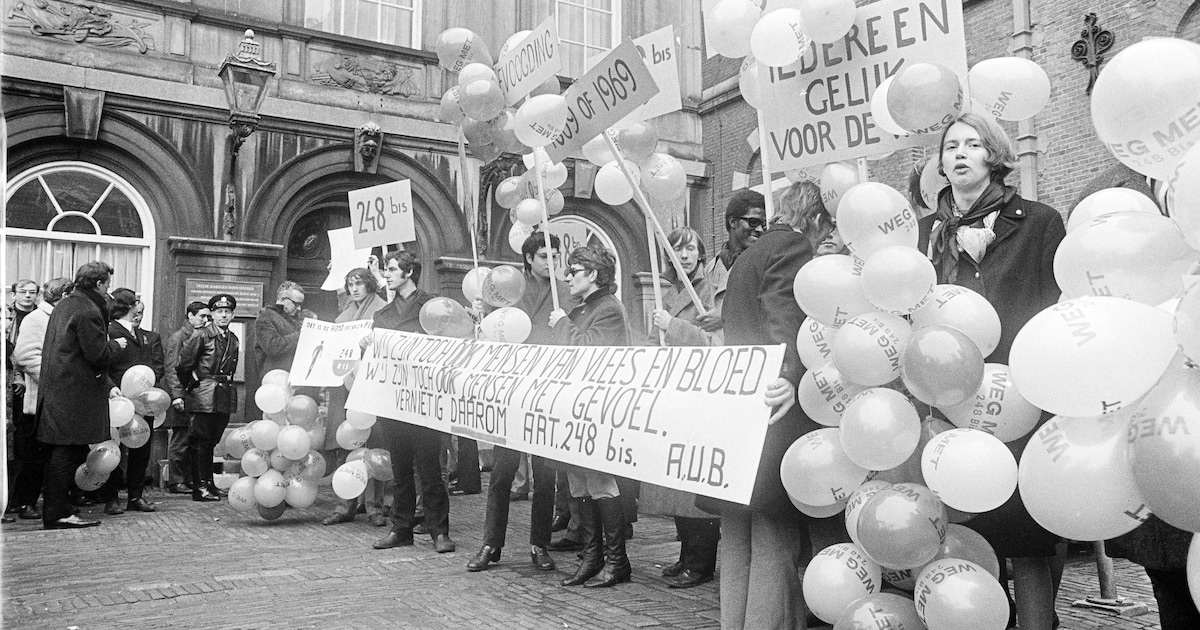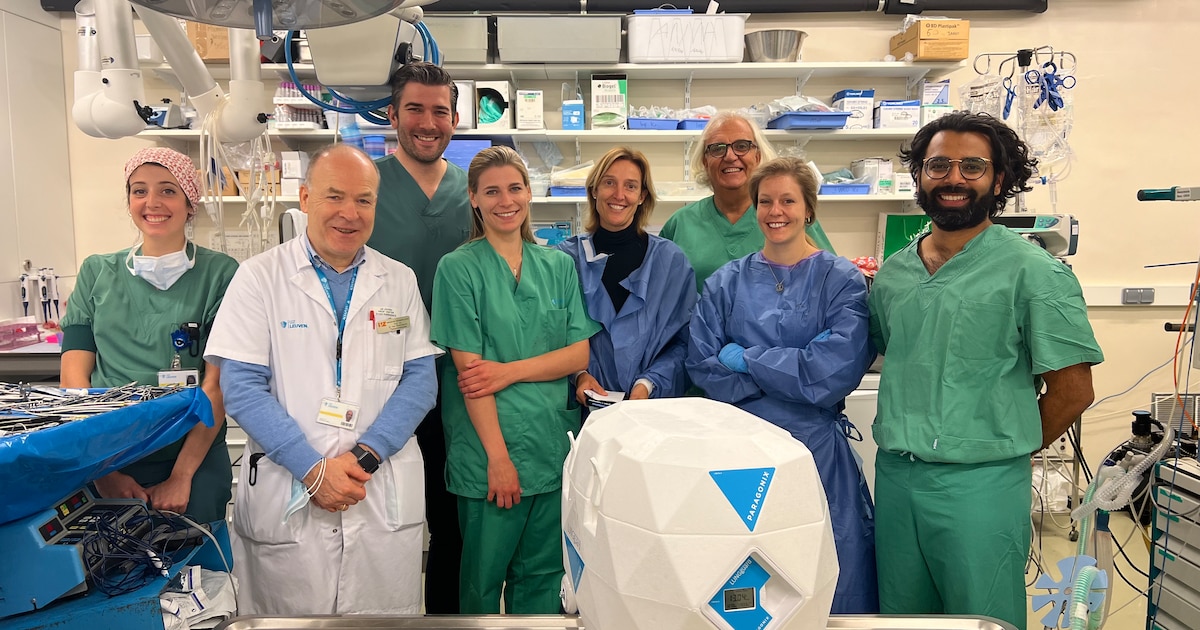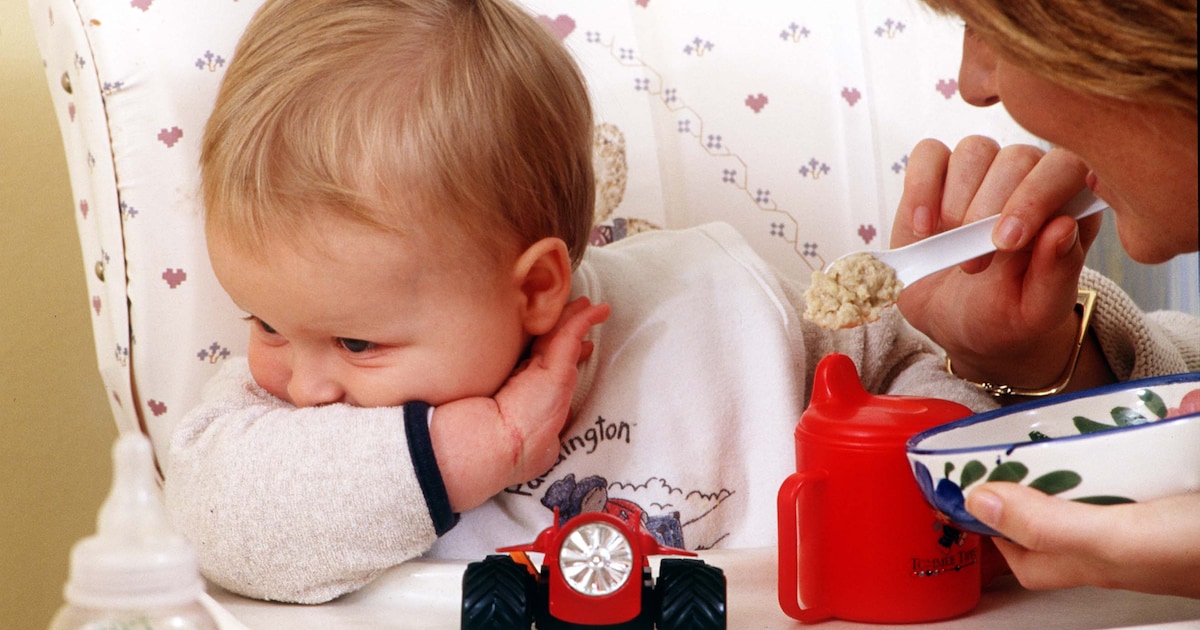The Dutch Psychiatric Association (NVvP) officially expressed its regret on Thursday afternoon over this “black page in the history of psychiatry.” At the annual spring conference of the association of approximately 3,800 psychiatrists, Niels Mulder, president of the NVvP, spoke: issued a 'statement of regret' on that occasion.
It is the first time in the Netherlands that a professional group has explicitly expressed regret over the treatment of LGBTI people (lesbian women, gay men, bisexual people, transgender and intersex people). In the United Kingdom, the association of psychiatrists already expressed its “deep regret” in a statement in 2017 for treatments such as electroshock therapy for gay men, lesbian women and bisexual people.
About the Author
Kaya Bouma prescribes by Volkskrant about psyche, brain and behavior. He also writes about mental health care.
For a long time, many psychiatrists viewed LGBTI people as psychiatric patients who could be cured. Between 1952 and 1973, homosexuality was even listed as a psychiatric disorder in the DSM, the manual for psychiatrists. It was not until 1990 that the World Health Organization removed homosexuality from the list of mental illnesses.
This way of working has caused “enormous damage,” says Mulder, president of NVvP. 'By expressing our regret we want to recognize that suffering. “We hope it can help people process trauma.”
Important sign
The expression of regret has been officially submitted to COC Netherlands and Transgender Network Netherlands (TNN). “Gender diverse people have been told for a long time that they would not be mentally healthy,” responds TNN President Remke Verdegem. “That is why it is important that the association of psychiatrists now clearly distances itself from this.”
The COC is glad that it is not just an expression of regret, but that the NVvP is also “looking to the future and wants to work with the rainbow community on diverse and inclusive mental health care,” according to spokesperson Philip Tijsma.
As far as we know, homogenization is completely prohibited in psychiatry, but it still occurs in religious circles in the Netherlands. This became evident three years ago. investigation commissioned by the Ministry of Health, Welfare and Sports. The NVvP therefore supports the bill that should prohibit homogenization. The House of Representatives has yet to discuss this bill.
“It fits with the spirit of the times”
The fact that Dutch psychiatrists express regret is unique, says Gemma Blok, professor of the history of mental health and culture at the Open University. 'It fits with the spirit of the times. Psychiatry is becoming more modest about its own capabilities. Psychiatrists are increasingly working with their clients rather than making decisions for them.'
Furthermore, psychiatrists consciously choose to “express regret” and not apologize. This is not due to fear of damage claims, says Mulder. The association does not expect that. “We believe that apologies are something that should be more widely supported by all medical and social institutions that have contributed to the stigma surrounding the LGBTI community.”
LGBTI people relatively frequently suffer psychological problems such as depression, social phobia or suicidal tendencies, result of several Dutch to the investigation. It is precisely this group that resists seeking psychological help, according to psychiatrists. Therefore, the NVvP wants to lower that threshold even further. The association will investigate how they will do this in the near future.

“Friendly travel trailblazer. Certified gamer. Evil bacon practitioner. Analyst. Problem solver.”







